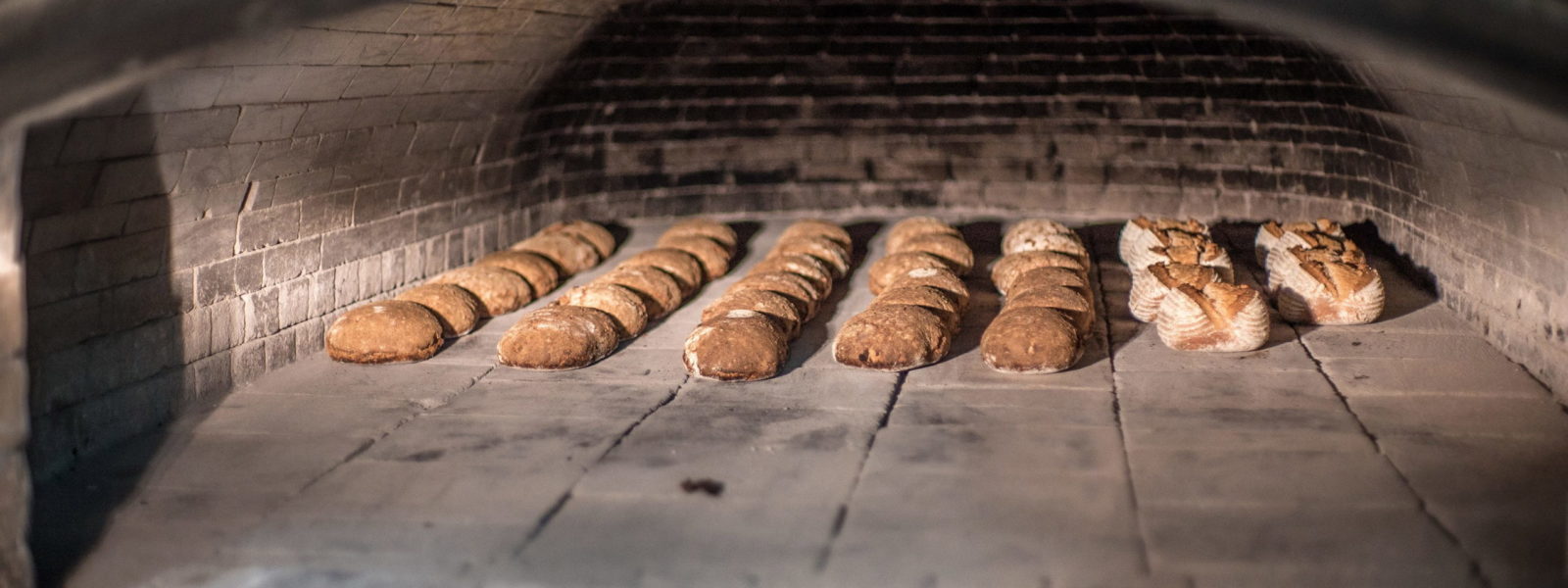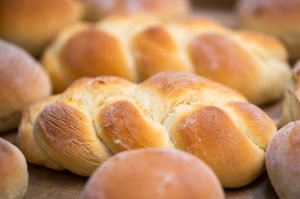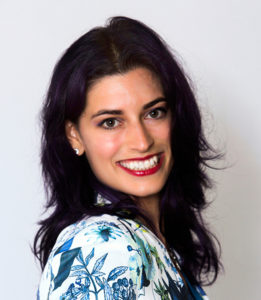
03 Dec Repetition is Key
I am not a baker. The world of yeasts and doughs, of icing, flour and exact measurements eludes me. Hand me some garlic and kale, and I’ll make you discover a love you never knew you had for green vegetables. But baking is a different art altogether.
Recently, though, I decided to start baking challah. Challah is the traditional braided bread eaten on Friday evening, when the Jewish day of rest (Shabbos) begins. It is beautiful, delicious, and the best ingredient for French toast that I’ve ever met.
I’ve been observing Shabbos more and more as I get older. The ritual has allowed me to hit the pause button on my life and take a moment without professional commitments, e-mail, or the regular stress of daily living. (I’ve even located the off button for my cell phone! That will be fodder for a different blog.)
So, fresh-baked challah seemed like a great ritual to add to my newly liberated Friday, especially after a friend told me how easy it was to make.
My friend lied.
Baking is hard!
The first week, something happened to make the bread blow up like a balloon, taking on a size twice as large as any respectable challah I’d ever seen before. It completely lost its braided shape. (It still tasted delicious, which was a satisfying consolation.)
I let a bit of time go by, and the next time I tried it, I made sure not to let the yeast bubble for too long. This time, the challah held its shape, but the taste and texture were off. I think it’s because I added too much flour after it had risen.
As I write, the aroma of freshly baked bread permeates the house. This is my third try, and this time, I worked on getting the flour-to-liquid ratio right from the get-go. The dough still doesn’t resemble that of the YouTube bakers teaching me how to make a six-strand loaf. I’m pretty sure I need to research kneading. That will be next week’s trial.
 As I continue on my challah-baking Shabbos journey, I inevitably start thinking about interpreting. (No matter how many off switches and pauses I take, my nerdiness remains my inexorable companion.) This is how interpreting is done, I thought! Here I am, trying to bake the same exact thing, week after week. First, I tweak the yeast, then the dough, then the kneading. I will continue to try until I get it right. And not by baking pie, or cupcakes, or lemon meringue! By baking challah. Over and over again.
As I continue on my challah-baking Shabbos journey, I inevitably start thinking about interpreting. (No matter how many off switches and pauses I take, my nerdiness remains my inexorable companion.) This is how interpreting is done, I thought! Here I am, trying to bake the same exact thing, week after week. First, I tweak the yeast, then the dough, then the kneading. I will continue to try until I get it right. And not by baking pie, or cupcakes, or lemon meringue! By baking challah. Over and over again.
That’s how interpreting must be studied. It is an art, an art that with time and discipline can improve with age. But repetition is key. You’ll get better by doing the same exercise, first improving your vocabulary, then your grammar and your syntax, then your listening ability, your visualization, your multi-tasking, your notetaking. Approach the same exercise each time from a different angle.
The key is, don’t switch exercises every five seconds. Perfect one exercise first, then move onto the next one. You won’t become a better interpreter/metaphorical baker by practicing with apple tarts one second and blueberry crumble the next.
The moral of the story? Practice interpretation with care and precision, just like baking bread. Once you’re done, reward yourself with a treat. Maybe some Challah Bread French toast. Shabbat shalom!
 Athena Matilsky fell in love with Spanish the year she turned 16. She chose it as her major at Rutgers University and selected a focus in translation and interpreting. After graduation, she taught elementary school in Honduras and then returned home to begin freelancing as a medical and court interpreter. She has since achieved certifications as a Healthcare Interpreter and a Federal Court Interpreter. She was the recent editor-in-chief of Proteus. Currently, she works as a freelance interpreter/translator and trains candidates privately for the state and federal interpreting exams. When she is not writing or interpreting, you may find her practicing acroyoga or studying French. Website: https://athenaskyinterpreting.wordpress.com/
Athena Matilsky fell in love with Spanish the year she turned 16. She chose it as her major at Rutgers University and selected a focus in translation and interpreting. After graduation, she taught elementary school in Honduras and then returned home to begin freelancing as a medical and court interpreter. She has since achieved certifications as a Healthcare Interpreter and a Federal Court Interpreter. She was the recent editor-in-chief of Proteus. Currently, she works as a freelance interpreter/translator and trains candidates privately for the state and federal interpreting exams. When she is not writing or interpreting, you may find her practicing acroyoga or studying French. Website: https://athenaskyinterpreting.wordpress.com/

Dear Ms. Matilsky,
I Love love your Challah baking story and how you connected it to interpreting 🙂
When you have a chance please email me so we could connect. Shabbat Shalom! and Hannukah Sameach
Happy Chanukah, Alexandra! I don’t have your email address but you’re welcome to contact me through my website. Take care!
I love this! Yes it makes a lot of sense and bravo to you cherie! Laughed out loud when I read “No matter how many off switches and pauses I take, my nerdiness remains my inexorable companion” – very funny and so true. I take yoga classes for my “pause” but am often in my head, and turn on the cell phone as soon as class is over! You are right, practice is key. The more assignments I take on, the easier I feel with the process, though it is always something new and exciting. Happy Holidays! 🙂
Shabbat Shalom! Yes interpreting takes practice, over and over again.
And a belated/early Shabbat Shalom to you, Jennifer!
Hi Gila!! The trick is to…hide your cell phone. Under a carpet. Then distract yourself so you’re having so much fun you forget where it is. 🙂
Happy Hanukkah!
You too, Richard!
Thank you for such a great example of what is required to improve our skillset. With so much information available I sometimes find it difficult to stay on course.
Any time, Laura 🙂
I enjoyed your article very much, although I had hoped to find the recipe for the Challah bread at the end.
Hi Maria,
Just for you (and anyone else who is interested)…here it is! https://docs.google.com/document/d/1Dc1leQMVERcocIjEE3qXfcuaSugWZtoE/edit?usp=sharing&ouid=105912381085771779902&rtpof=true&sd=true
Shabbat Shalom, Athena. I love challah, and the metaphorical use here was perfect. Thank you and Shanah Tova.
Thank you Gio! I’m so glad you enjoyed it. 🙂
LOVE YOUR STORY. THANK YOU.
You’re welcome!! 🙂
I loved the story and the metaphor, Athena, and it inspired me to keep practicing my baking skills. Thank you!